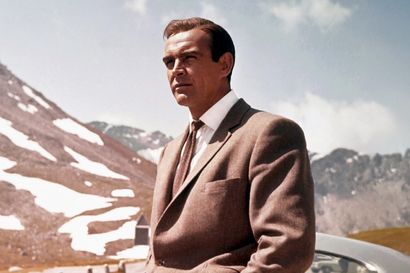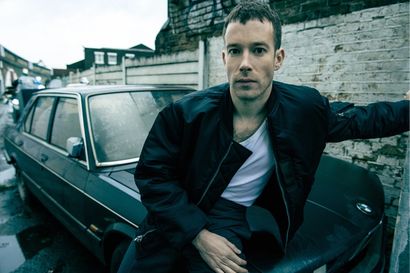Sitting across from Oliver Jackson-Cohen in the quirkily cosy confines of London’s Soho Hotel, it’s hard to parse the charming, easy-going man in front of me with the one I watched on screen a few hours earlier. It sounds inane – Jackson-Cohen is, after all, an actor – but the contrast couldn’t be more stark.
“He’s terrifying because he’s real,” explains Jackson-Cohen of his character, Adrian Griffin, the titular Invisible Man of his latest movie. “We’ve come across people like him. Leigh [Whannell – writer and director] has taken this monster that’s been in our consciousness for 90 years and made him a human being. Without the fantastical elements, he’s inherently more terrifying.”
The monster Jackson-Cohen refers to is, of course, the Invisible Man of the 1897 H.G. Wells novel. This latest adaptation was originally conceived as part of Universal’s MCU-style Monsters Universe, with Johnny Depp in the title role, but the box office failure of 2017’s The Mummy caused the studio to pull back and instead give each monster in the property its own unique treatment.
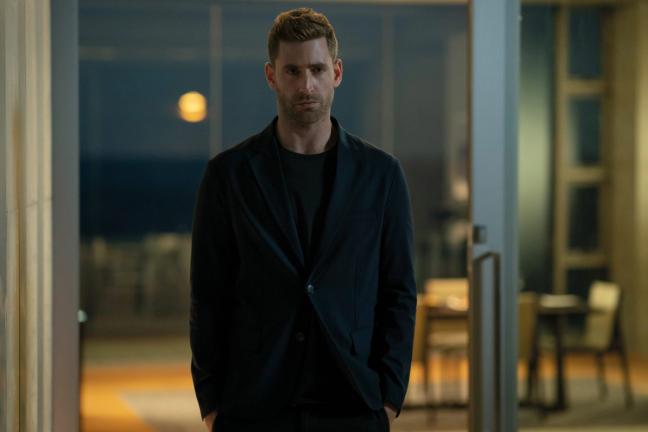
And, if The Invisible Man is anything to go by, modern horror fans are in for a treat. Forget any notions of mad scientists and dodgy CGI transformations. This is an utterly contemporary and completely unrelenting story about the terrors of domestic violence and the devastating way society treats its victims. Recast as a controlling, narcissistic tech billionaire, Jackson-Cohen’s Invisible Man terrorises his escaped girlfriend Cecilia Kass (Elisabeth Moss) from beyond the ‘grave’ to the point of desperation and almost complete breakdown.
“It’s about gaslighting and how as a society we still always question the woman and call her emotional or crazy,” says Cohen. “I know that so much has happened in the world over the past couple of years but it’s still just as rife and it’s a really important conversation that needs to happen. The degree of control and the degree of narcissism, of course it’s inflated in the movie, but it’s terrifying because it’s true.”
Without giving too much away, Griffin’s recasting as a tech CEO is also crucial to the story, and adds a distinctly dystopian edge to the film. “I think that what Leigh’s done, without being on-the-nose, is hold up a mirror to society for all of these behaviours,” says Jackson-Cohen. “It’s not just domestic abuse, it’s about how we live in a world where technology is advancing so rapidly and there’s a part of us that likes to play god. Look at the idea of Alexa. Everyone’s like, ‘Yeah, I’d love to have that in my home!’. Why the f**k would you want that in your house?! It’s crazy. I do think, ultimately, technology will be what kills us.”
"If I’m going to be typecast, I would rather be creatively fulfilled and get typecast in the good roles."
This role comes hot on the heels of Jackson-Cohen’s turn as the more morally ambiguous, but no less intense, recovering drug addict Luke in Netflix’s The Haunting of Hill House. Doesn’t he ever have a hankering just to play the good guy? “No, it’s boring! This sounds really stupid but I’m not very good at playing those characters. Early in my career I was pushed into playing the action hero or the romantic lead and I was so miserable. People like Adrian or Luke, they are characters I feel safer playing – which sounds really weird – but I can’t actually imagine anything more terrifying than having to play Prince Charming.”
Accordingly, Jackson-Cohen is very selective about the roles he will take. He talks openly about the first five years of his career – a span which included projects as disparate as starring opposite The Rock in Faster, Jeremy Piven in Mr Selfridge and Alison Williams as Prince William in Funny of Die’s royal spoof videos – as an unfulfilling, unhappy time that resulted in him taking nine months away from acting altogether.
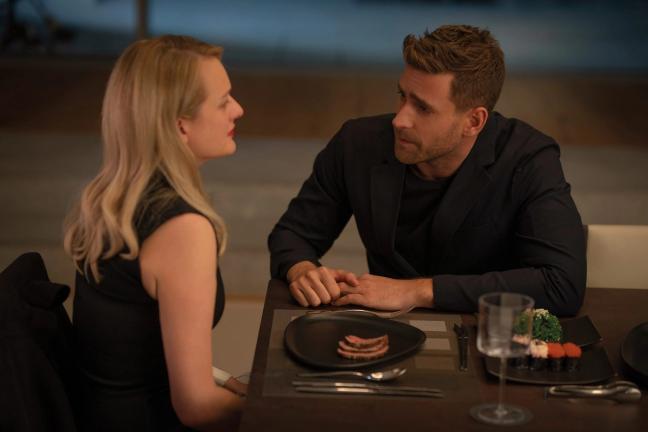
He made tentative steps back to the screen in 2017’s BBC drama Man in the Orange Shirt, before becoming a household name thanks to the much lauded Hill House, the sequel to which is due out later this year. But with a string of consecutive horror projects behind him, does he ever worry about being typecast? “Typecasting is inevitable,” he says matter-of-factly. “You do one horror thing and then all the horror things come, you do one romantic comedy and all the romantic comedies come. We’re quite stupid as an industry in that respect – people can never see you as more than one thing. The hard thing about being an actor is knowing that most of your job is convincing people against their pre-conceived thoughts of you.
“The reality is that it’s rare to get characters with that amount of depth. It’s a constant uphill battle but, if I’m going to be typecast, I would rather be creatively fulfilled and get typecast in the good roles.”
With that in mind, there’s one (or is that two?) character Jackson-Cohen has got his eye on: Dr Jeckell and Mr Hyde. “If they do the same treatment they’ve done with this film and it becomes about multiple personality disorder, I just think it would be such a fascinating character to play,” he says. And as to the likelihood of him securing not one, but two, of cinema’s most famous villains? “I’m obsessed, I’m going to talk to [producer] Jason Blum about it.” You heard it here first film fans.
Looking more from the world of stage and screen? Jacob Dudman won’t be a stranger much longer…
Join the Gentleman’s Journal Clubhouse here.
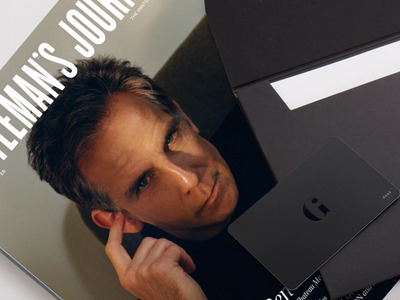
Become a Gentleman’s Journal Member?
Like the Gentleman’s Journal? Why not join the Clubhouse, a special kind of private club where members receive offers and experiences from hand-picked, premium brands. You will also receive invites to exclusive events, the quarterly print magazine delivered directly to your door and your own membership card.

